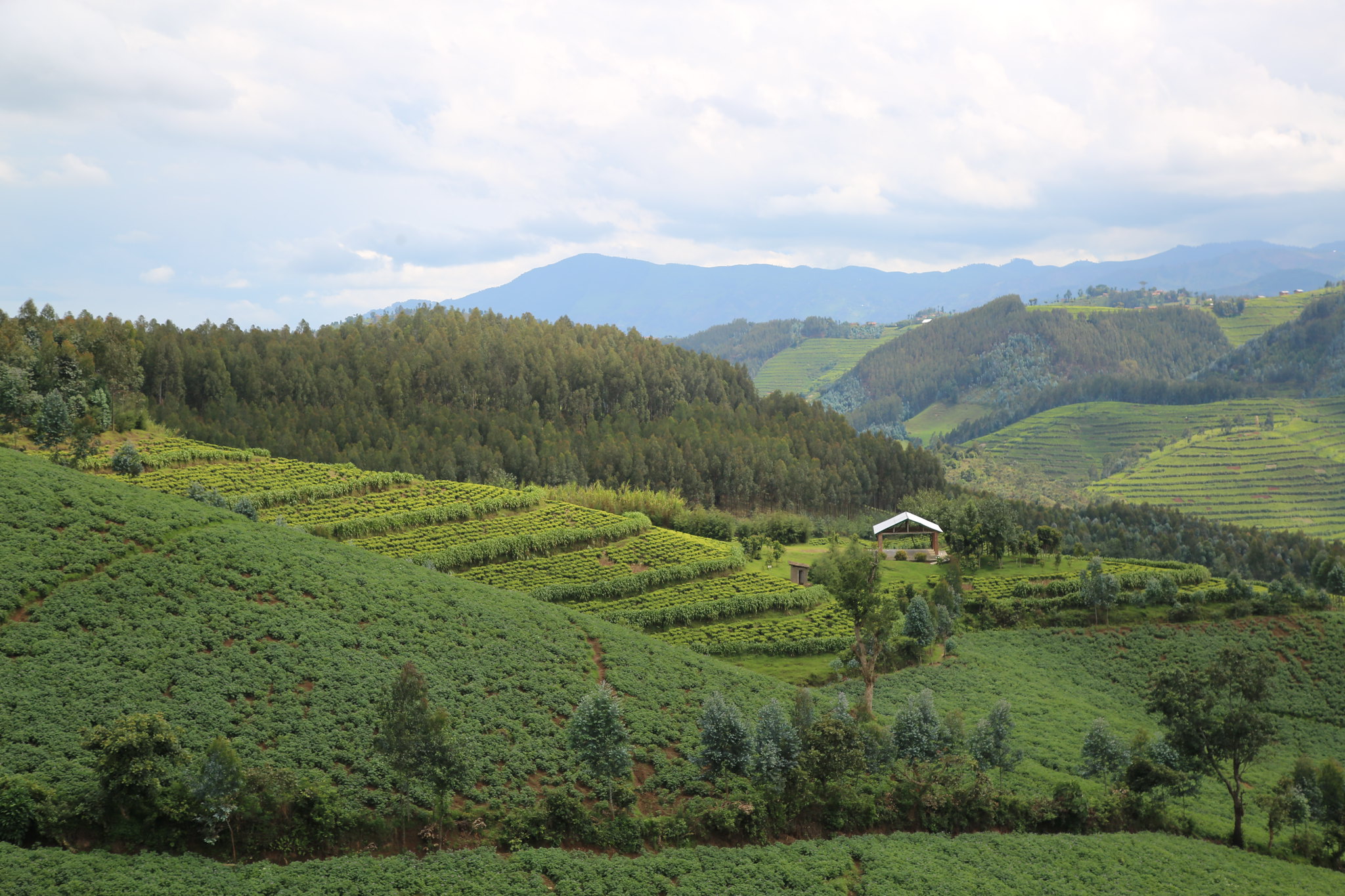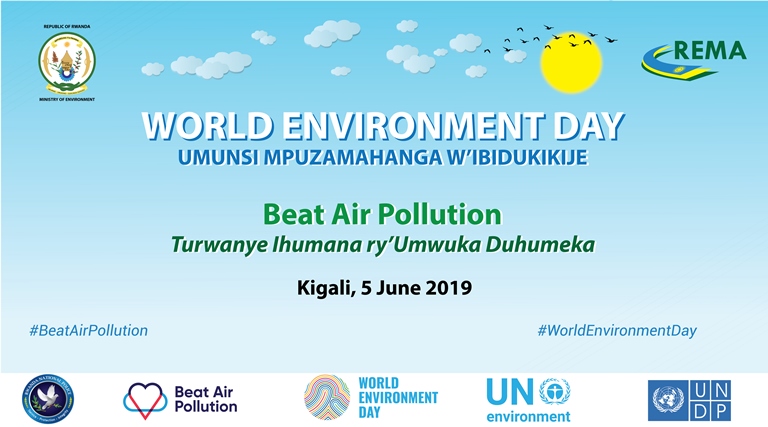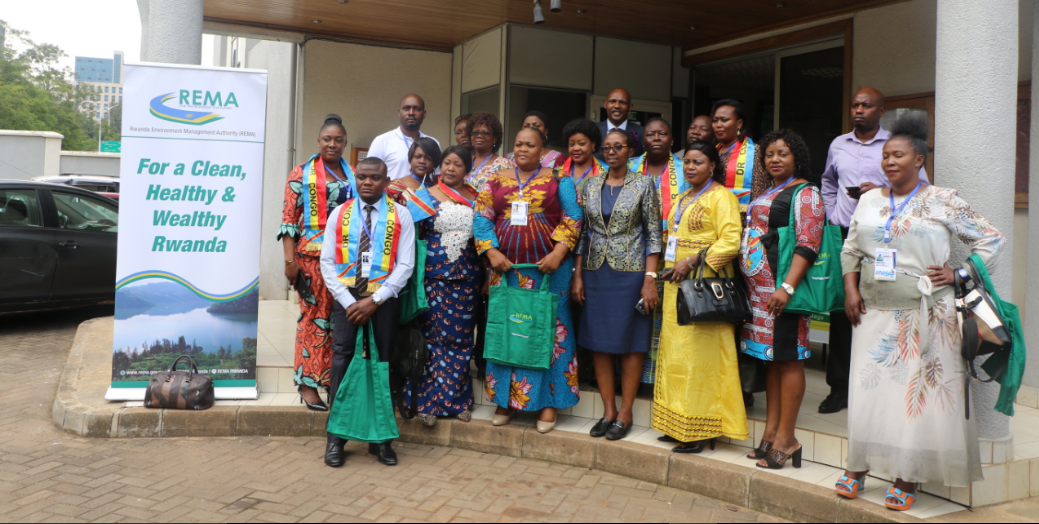
Remarks by Minister Biruta at 2019 National Seminar on Air Pollution
Kigali, 05/30/2019
Remarks by Vincent Biruta, Minister of Environment
National Seminar on Air Pollution
Kigali Serena Hotel | 30 May 2019
Good morning! Mwaramutse!
It is a pleasure to welcome you to the 2019 National Seminar on Air Pollution. I wish to extend a special welcome to the Minister of Environment, Green Economy and Climate Change from Burkina Faso along with your delegation. Thank you for joining us.
Today’s gathering forms part of a series of events celebrating World Environment Day. This year, our focus is on air pollution and what we can do to improve the quality of air we breathe.
This seminar has brought together the scientific community and a range of other stakeholders. Through today’s discussions, I hope you will gain new insights, make new connections, and be inspired to expand your research and contribute even further to developing solutions to air pollution.
There is no doubt that air pollution is a major public health crisis and the world’s most pressing environmental health threat. Today, more than 90% of people globally breathe polluted air and approximately seven million people die from air pollution-related causes every year.
Air pollution costs the global economy US $5 trillion in welfare costs annually and ground-level ozone pollution is expected to reduce staple crop yields by 26 percent by 2030. Despite our size, Rwanda is not immune to the challenge of air pollution.
According to the results of an inventory on the sources of air pollution, Rwanda is being affected by all major pollutants but particulate matter and nitrogen dioxide are the pollutants of main concern. Monitoring data has indicated that concentrations of some types of particulate matter in Kigali are elevated and, at times, above globally acceptable standards.
The research indicates that vehicle emissions are the leading cause of air pollution in Kigali and other urban areas, while domestic wood, charcoal cookstoves and burning in fields are the primary contributor to poor air quality in residential and rural areas.
What this data tells us is that we are all exposed to air pollution, and that we all have a role to play to address it. Whether you are a farmer who burns the remains of your harvest, a parent who cooks with charcoal or someone who drives a car, there is something we can all do to clean the air we breathe.
If we don’t take action now, the negative health effects will only get worse. Chronic exposure to a polluted air increases to the risk of cardiovascular and respiratory diseases, as well as lung cancer. New research has also indicated that air pollution affects happiness, may cause dementia and could even impair cognitive ability, especially in children.
Rather than spend large sums of money addressing the impacts of air pollution, let’s control the problem at the source. Doing so requires a joint effort - from the individual level to government. That’s why we are putting in place the policies, laws, regulations and standards to reduce air pollution.
Regular car-free days, creating green spaces, motor vehicle inspections, introducing bike lanes, subsidies for LPG as an alternative to charcoal for cooking, emissions standards, e-mobility strategies and the recent establishment of the African Air Quality and Climate Laboratory here in Kigali are just a few examples.
Forests also play a key role in purifying the air we breathe. That’s one reason Rwanda is aiming for 30% forest coverage by 2020 - a goal we are close to achieving. And while Nyungwe or Gishwati might seem far off, we can bring the forest to our doorstep by planting native trees in our gardens and public spaces. Not only do trees filter pollution from the air, but they also help to cool the city through shading and by releasing water vapour.
Distinguished guests,
Ladies and gentlemen,
While the main sources of air pollution in Rwanda have been identified, there is much more that the scientific community can contribute to our understanding of the challenge.
I encourage our research partners to explore air quality modelling to predict future levels of air pollution and their sources. We will also need detailed risk assessments to quantify the potential impact and costs of air pollution related health problems.
We also count on you to support policy making by conducting cost-benefit analyses to compare different regulatory approaches. The Ministry of Environment is ready to support you in these endeavours.
To conclude, I would like to encourage us all to put our heads together to find innovative ways to address the problem and strive to build an environment free from air pollution, and indeed pollution of any kind. Together we can Beat Air Pollution.
Thank you for your kind attention.
Topics
More posts
Rwanda Introduces New Environment and Climate Change Policy
The Government of Rwanda, through the Ministry of Environment, has introduced a new Environment and Climate Change Policy to better prepare the…
Rwanda Celebrates the World Environment Day 2019
Rwanda has joined the rest of the world to celebrate World Environment Day, the event that brought together government and non-state actors to discuss…
Rwanda to Celebrate 2019 World Environment Day by Awarding Clean Air Champions
Every year on 5 June, Rwanda joins the rest of the international community to celebrate World Environment Day. To mark the occasion this year, the…
Remarks by Minister Biruta at 2019 National Seminar on Air Pollution
Kigali, 05/30/2019
Remarks by Vincent Biruta, Minister of Environment
National Seminar on Air Pollution
Kigali Serena Hotel | 30 May 2019
Good…
Motorists Are Urged to Beat Air Pollution by Regular Worthiness Motor Vehicle Inspection
Kigali, 29 May, 2019- In view of beating air pollution caused by motor vehicle emissions, Rwanda Environment Management Authority (REMA) in…
REMA Holds Community Competitions to Raise Awareness on Fighting Air Pollution
As Rwanda prepares to celebrate the World Environment Day, The Rwanda Environment Management
Authority (REMA) is holding football community…
National Environment Week Encourages Rwandans to Beat Air Pollution
The 2019 National Environment Week has been organised from 25 May - 5 June 2019 to draw attention to the challenges posed by air pollution and…
Labour Day 2019: REMA Appreciates Outstanding Employees of the Year 2018-2019
On this 1 May, 2019The Management and Staff of Rwanda Environment Management Authority (REMA) have celebrated the International Labour Day, themed…
Democratic Republic of Congo Delegation visits REMA
Kigali, 1 April, 2019 - A delegation from the National Agency for Sanitation and Public Health of the Democratic Republic of Congo (ANASAP), has…







